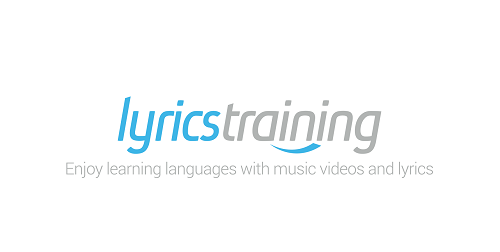LEARN ENGLISH WITH MEDELLÍN NEWS REPORT
INTERACTIVE CONTENT
LEARN ENGLISH WITH MEDELLÍN NEWS REPORT
AUTHOR: Gary Scott Vernier
GRAPHIC DESIGNER: Kelly Andrea Patiño Rua
Institución Universitaria Pascual Bravo, Colombia
Fondo Editorial Pascual Bravo
Medellín
LEARN ENGLISH WITH MEDELLÍN NEWS REPORT
AUTHOR: Gary Scott Vernier
GRAPHIC DESIGNER: Kelly Andrea Patiño Rua
Primera edición: 2017
Diseño del libro: Juan Guillermo Rivera Berrío
Diseño de cubierta: Diana María Velásquez García
Librería turn.js: Emmanuel García
Herramienta de edición: DescartesJS
Fuente: Amaranth
Fondo Editorial Pascual Bravo
Calle 73 73A-226
PBX: (574) 4480520
Apartado 6564
Medellín, Colombia
www.pascualbravo.edu.co
ISBN: 978-958-56476-2-6

Esta obra está bajo una licencia Creative Commons 4.0 internacional: Reconocimiento-No Comercial-Compartir Igual. Todos los objetos interactivos y los contenidos de esta obra colectiva están protegidos por la Ley de Propiedad Intelectual.
TABLE OF CONTENTS
ACERCA DE ÉSTE LIBRO DIGITALii
HOW TO USE THIS INTERACTIVE BOOKiii
I. CHAPTER 1: A Dutch Tourist Lost in Parque Arví 1
II. CHAPTER 2: Landslide Kills 16 People 13
III. CHAPTER 3: Tom Cruise in Medellín 25
IV. CHAPTER 4: Cycling in Medellín 37
V. CHAPTER 5: Medellín Como Vamos 49
VI. CHAPTER 6: Converting Trash to Energy in Medellín 61
VII. CHAPTER 7: Parque Explora 73
VIII. CHAPTER 8: Fossils found in Colombia 85
IX. CHAPTER 9: Cell Phones in Colombia 97
X. CHAPTER 10: Nightlife in Downtown Medellin 109
i
ACERCA DE ÉSTE LIBRO DIGITAL
De la colección iCartesiLibri surge este libro digital interactivo, diseñado de tal forma que permita el aprendizaje significativo a través de la intervención directa y personal del usuario, el cual se convierte en el protagonista del libro, en tanto que podrá interactuar con algunos objetos de aprendizaje. Estos objetos de aprendizaje interactivos fueron diseñados con el editor DescartesJS.
Todos los recursos incluidos en este libro se basan en el estándar HTML5 y consecuentemente son plenamente accesibles y operativos en cualquier ordenador, tableta o smartphone sin más que utilizar un navegador compatible con dicho estándar. Diseñar en HTML5, significa que usaremos:
- Lenguaje HTML
- Hojas de estilo CSS
- Programación en JavaScript
ii
HOW TO USE THIS INTERACTIVE, DIGITAL BOOK
This digital book is divided into 10 chapters. Each chapter has the same elements:
1. A 2-3 minute video about different news stories from 2016 in the city of Medellín, Colombia.
2. A temporal sequencing activity.
3. A timed true/false activity.
4. A vocabulary activity.
5. A grammar section with changing topics and activities.
6. An evaluation activity.
7. A link to further resources
IF YOU HAVE ANY COMMENTS, SUGGESTIONS, OR QUESTIONS, YOU CAN REACH THE AUTHOR OF THIS DIGITAL BOOK AT english.virtual@pascualbravo.edu.co.
GOOD LUCK!
iii
CHAPTER 1
A Dutch Tourist Lost in Parque Arví
GOOD LUCK!
GRAMMAR
REGULAR AND IRREGULAR VERBS
To form the past in English, you simply add -ed to the end of the verb. Unfortunately, some of the most important words in English do NOT follow that rule. We call those verbs IRREGULAR VERBS. They are irregular because you do NOT add -ed at the end to form the past. Instead, you simply have to memorize the irregular verbs and their past forms.
EXAMPLES OF A FEW COMMON IRREGULAR VERBS
(THERE ARE HUNDREDS!)
(THERE ARE HUNDREDS!)
| INFINITIVE | PAST FORM | TO GO | WENT | TO HAVE | HAD | TO LEAVE | LEFT | TO BUY | BOUGHT | TO TAKE | TOOK | TO COME | CAME | TO MAKE | MADE | TO GIVE | GAVE | TO FEEL | FELT |
|---|
6
PRACTICE THE PAST TENSE WITH VOSCREEN

VOSCREEN is a fun way to develop English listening skills using short movie clips.
Click on the link below to go to VOSCREEN and register for an account (it is free and easy). After you set up your account, go to the grammar section and select Past Tense to practice listening to sentences in the past tense.
10
CHAPTER 2
Landslide Kills 16 People
GOOD LUCK!
GRAMMAR
PREPOSITONS ON & IN
Prepositions can be tricky for English learners. There is no definite rule or formula for choosing a preposition. For Spanish speakers it can be even more difficult because both on and in = "en." The table below gives a few common uses of on versus in.
EXAMPLES OF A FEW COMMON USES OF "ON" & "IN"
(THERE ARE HUNDREDS!)
(THERE ARE HUNDREDS!)
| ON | IN | ON the table. | IN the morning | ON Monday | IN the summer | ON June 14th | IN July | ON the computer | IN California | ON sale | IN a circle | ON fire | I believe IN | ON my foot | I am interested IN | ON the phone | IN a hotel | ON TV | IN a car |
|---|
18
PRACTICE ENGLISH WITH LYRICSTRAINING

LYRICS TRAINING is a fun way to develop English listening skills using music videos.
Click on the link below to go to LYRICS TRAINING and register for an account (it is free and easy). After you set up your account, begin competing with players from around the world for the highest scores on each video..
22
CHAPTER 3
TOM CRUISE IN MEDELLÍN
GOOD LUCK!
GRAMMAR
PREPOSITONS OF & FOR
Prepositions can be tricky for English learners. There is no definite rule or formula for choosing a preposition. The table below gives a few common uses of "for" versus "of."" "For" usually tells us about the use of something, while "of" usually shows a connection or relationship.
EXAMPLES OF A FEW COMMON USES OF "OF" & "FOR"
| OF | FOR | Is she a friend OF yours? | The cake is FOR after dinner. | This is a photo OF my son. | The knife is used FOR cutting the meat. | I would like a glass OF wine. | We need batteries FOR the remote. | She is the owner OF the store. | We use it FOR cleaning the house. | A large number OF people take the bus. | We bought a new TV FOR the living room. |
|---|
30
PRACTICE ENGLISH WITH USALEARNS

USALEARNS is a great website to practice English speaking, reading, writing, listening, grammar, vocabulary and more.
Click on the link below to go to USALEARNS and register for an account (it is free and easy). Since 2008, when the website originally launched, nearly 10 million adults from around the world have visited USA Learns to learn English.
34
CHAPTER 4
CYCLING IN MEDELLÍN
GOOD LUCK!
GRAMMAR
PREPOSITONS TO & AT
Prepositions can be tricky for English learners. There is no definite rule or formula for choosing a preposition. The table below gives a few common uses of "to" versus "at." In these examples, "at" usually means to hit someone and "to" usually means to give something to someone.
EXAMPLES OF A FEW COMMON USES OF "TO" & "AT"
| AT | TO | To play darts, you have to throw the darts AT the board | Can you please toss the keys TO me? Thanks!. | The boy was mad because his sister threw a snowball AT him. | Don't throw the ball TO me, I can´t catch. | Throw the shoe AT the dog so he will stop barking. | Throw the shoe TO the dog. He likes to play with it. | The clown threw the pie AT the man's face. | Will you please throw my cell phone TO me? |
|---|
42
PRACTICE ENGLISH WITH VOICE OF AMERICA (VOA)

VOA is a great website to practice English speaking, reading, writing, listening, grammar, vocabulary and more.
Click on the link below to go to VOA and begin practicing English. (it is free and easy).
46
CHAPTER 5
MEDELLÍN COMO VAMOS
GOOD LUCK!
GRAMMAR
SIMPLE PRESENT VERB
WE USE THE SIMPLE PRESENT FOR THE FOLLOWING SITUATIONS:
To express habits, general truths, repeated actions or unchanging situations, emotions and wishes:
I smoke (habit); I work in Medellin. (unchanging situation); Bogota is a large city (general truth)
To give instructions or directions:
You walk for two hundred yards, then you turn left.
THE SIMPLE PRESENT FORM OF THE VERB IS AS FOLLOWS:
(NOTE THAT THE SINGULAR SUBJECT HE, SHE OR IT HAS AN "S" ADDED TO THE END OF THE VERB.)
(NOTE THAT THE SINGULAR SUBJECT HE, SHE OR IT HAS AN "S" ADDED TO THE END OF THE VERB.)
| SINGULAR | PLURAL | I play | We play. | You play | You all play | He plays | They play | She plays | They play | It plays | They play |
|---|
54
PRACTICE ENGLISH WITH TRACE EFFECTS

This innovative language learning video game will complement students’ classroom English language instruction through interactive 3-D multimedia learning adventures. Gamers interact and solve puzzles in a virtual world filled with diverse English-speaking characters. In the game, students take a dynamic journey through the United States, traveling to cultural locations like Kansas, New Orleans, the Grand Canyon, New York City, San Francisco, and Washington, D.C.
Click on the link below to go to TRACE EFFECTS and begin practicing English. (it is free and easy).
58
CHAPTER 6
CONVERTING TRASH TO ENERGY IN MEDELLÍN
GOOD LUCK!
GRAMMAR
SIMPLE PRESENT VERB - NEGATIVE FORM
WE USE THE SIMPLE PRESENT IN GENERAL FOR THE FOLLOWING SITUATIONS:
To express habits, general truths, repeated actions or unchanging situations, emotions and wishes. In the negative form:
I do not smoke (habit); I do not work in Medellin. (unchanging situation); A horse does not fly. (general truth)
THE SIMPLE PRESENT NEGATIVE FORM OF THE VERB IS AS FOLLOWS:
(NOTE THAT THE SINGULAR SUBJECT HE, SHE OR IT USES "DOES".)
(NOTE THAT THE SINGULAR SUBJECT HE, SHE OR IT USES "DOES".)
| SINGULAR | PLURAL | I do not play | We do not play. | You do not play | You all do not play | He does not play | They do not play | She does not play | They do not play | It does not play | They do not play |
|---|
66
PRACTICE ENGLISH WITH READ THEORY

Start your journey through our vast library of reading comprehension content. ReadTheory's adaptive approach fosters improvement by automatically meeting learners at their own, individual ability levels. Signup takes seconds. Progress is shown on an intuitive report, replete with actionable, meaningful insights. Our program is completely free. This is the best Reading Comprehension site on the internet today! 7.4 million students have completed 130 million quizzes on ReadTheory to date.
Click on the link below to go to READ THEORY and begin practicing English. (it is free and easy).
70
CHAPTER 7
PARQUE EXPLORA
GOOD LUCK!
GRAMMAR
SIMPLE PRESENT VERB - QUESTONS
WE USE THE SIMPLE PRESENT IN GENERAL FOR THE FOLLOWING SITUATIONS:
To express habits, general truths, repeated actions or unchanging situations, emotions and wishes. As a question:
Do you smoke? (habit); Does he work in Medellin? (unchanging situation); Do horses fly? (general truth)
THE SIMPLE PRESENT QUESTION FORM OF THE VERB IS AS FOLLOWS:
(NOTE THAT THE SINGULAR SUBJECT HE, SHE OR IT USES "DOES".)
(NOTE THAT THE SINGULAR SUBJECT HE, SHE OR IT USES "DOES".)
| SINGULAR | PLURAL | Do I play tennis? | Do we play golf? | Do you play baseball? | Do you all play soccer? | Does he play the piano? | Do they play volleyball? | She she play with legos? | Do they play rock music? | Does it play on Saturday? | Do they play on Sunday? |
|---|
78
PRACTICE ENGLISH WITH CONNECT WITH ENGLISH

Connect with English is a story to help you learn English. It contains 48 episodes that tell the story of Rebecca Casey, a young woman who lives in Boston. She works in a factory and takes care of her father and brother. Rebecca has big dreams. She wants to go to college to study music. Will Rebecca's dream come true? Connect with English was funded by Annenberg Media and produced by WGBH Boston. It premiered in 1998 and aired on PBS stations and The Annenberg Channel.
Click on the link below to go to CONNECT WITH ENGLISH and begin practicing English. (it is free and easy).
82
CHAPTER 8
FOSSILS FOUND IN COLOMBIA
GOOD LUCK!
GRAMMAR
SIMPLE PRESENT PROGRESSIVE
WE USE THE SIMPLE PRESENT PROGRESSIVE FOR THE FOLLOWING SITUATION:
to describe an action that is going on at this moment.
EXAMPLE: You are studying English grammar.
THE SIMPLE PRESENT PROGRESSIVE FORM OF THE VERB IS AS FOLLOWS:
(NOTE THAT YOU ALWAYS NEED THE AUXILIAR VERB "TO BE.")
(NOTE THAT YOU ALWAYS NEED THE AUXILIAR VERB "TO BE.")
| SINGULAR | PLURAL | I am playing tennis. | We are playing golf. | You are playing basketball. | You all are playing soccer. | His is playing the piano. | They are playing volleyball. | She is playing with legos. | They are listening to rock music. | It is playing on Saturday. | They are playing on Sunday. |
|---|
90
PRACTICE ENGLISH WITH THE BBC FROM ENGLAND

As part of the BBC World Service, BBC Learning English has been teaching English to global audiences since 1943, offering free audio, video and text materials to learners around the world. Many of our materials are delivered as full length courses but each component of the course is standalone and can be studied on its own. This means the learner can choose the best way to study for them; by following a full course or by following the individual materials most appropriate to them.
Click on the link below to go to BBC and begin practicing English. (it is free and easy).
94
CHAPTER 9
CELL PHONES IN COLOMBIA
GOOD LUCK!
GRAMMAR
SIMPLE PRESENT PROGRESSIVE: NEGATIVE FORM
WE USE THE SIMPLE PRESENT PROGRESSIVE FOR THE FOLLOWING SITUATION:
to describe an action that is going on at this moment.
EXAMPLE IN NEGATIVE FORM: You are not studying English grammar.
THE SIMPLE PRESENT PROGRESSIVE FORM OF THE VERB IS AS FOLLOWS:
(NOTE THAT YOU ALWAYS NEED THE AUXILIAR VERB "TO BE.")
(NOTE THAT YOU ALWAYS NEED THE AUXILIAR VERB "TO BE.")
| SINGULAR | PLURAL | I am not playing tennis. | We are not playing golf. | You are not playing basketball. | You all are not playing soccer. | His is not playing the piano. | They are not playing volleyball. | She is not playing with legos. | They are not listening to rock music. | It is not playing on Saturday. | They are not playing on Sunday. |
|---|
102
PRACTICE ENGLISH WITH SECOND LIFE

In 2003, we launched Second Life, the pioneering virtual world that’s been enjoyed by millions of people and seen billions of dollars transacted among users in its economy. In 2013, we expanded our portfolio with Blocksworld, a lighthearted build-and-play system on the iPad for kids and grownups alike. In 2017, we debuted Sansar, a new platform for creating social VR experiences. Sansar democratizes VR as a creative medium, making it easy for people to create, share, and sell their own social VR experiences. Linden Lab was founded in 1999 and is headquartered in San Francisco with additional offices in Seattle, Boston, Davis, and Charlottesville.
Click on the link below to go to SECOND LIFE and begin practicing English. (it is free and easy).
106
CHAPTER 10
NIGHTLIFE IN DOWNTOWN MEDELLIN
GOOD LUCK!
GRAMMAR
SIMPLE PRESENT PROGRESSIVE QUESTIONS
WE USE THE SIMPLE PRESENT PROGRESSIVE FOR THE FOLLOWING SITUATION:
to describe an action that is going on at this moment.
EXAMPLE WITH QUESTION: Are you studying English grammar?
THE SIMPLE PRESENT PROGRESSIVE QUESTION FORM OF THE VERB IS AS FOLLOWS:
(NOTE THAT YOU ALWAYS NEED THE AUXILIAR VERB "TO BE.")
(NOTE THAT YOU ALWAYS NEED THE AUXILIAR VERB "TO BE.")
| SINGULAR | PLURAL | Am I playing tennis? | Are we playing golf? | Are you playing basketball? | Are you all playing soccer? | Is he playing the piano? | Are they playing volleyball? | Is she playing with legos? | Are they listening to rock music? | Is it playing on Saturday? | Are they playing on Sunday? |
|---|
114
PRACTICE ENGLISH WITH DUOLINGO

Everyone learns in different ways. For the first time in history, we can analyze how millions of people learn at once to create the most effective educational system possible and tailor it to each student. Our ultimate goal is to give everyone access to a private tutor experience through technology. There are over 1.2 billion people learning a language and the majority are doing so to gain access to better opportunities. Unfortunately, learning a language is expensive and inaccessible to most. We created Duolingo so that everyone could have a chance. Free language education – no hidden fees, no premium content, just free.
Click on the link below to go to DUOLINGO and begin practicing English. (it is free and easy).
118
PART II COMING SOON!!
